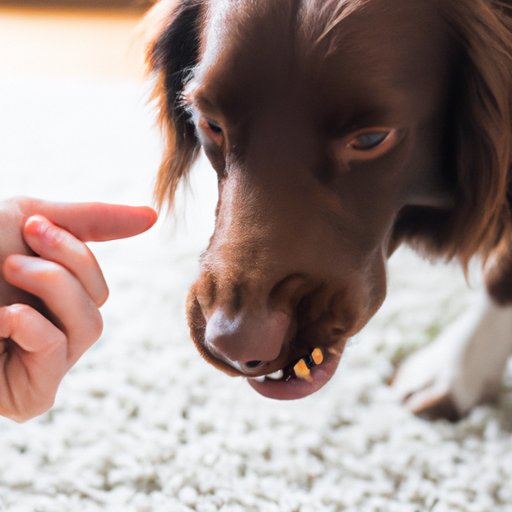Introduction
Dogs have a tendency to be curious about their environment, but this can sometimes lead to negative behaviors, like eating worms. While it may seem harmless at first, this can actually pose health risks to your furry friend. In this article, we will discuss different solutions to help you stop your dog from eating worms.
Understanding the Reason
The first step in addressing this issue is to understand why dogs might be interested in eating worms. It could be due to a number of reasons, such as boredom, hunger, or even nutritional deficiencies. Understanding the motivation behind their behavior could help you determine the best course of action to stop it.
Limit Access
One solution is to restrict access to the areas where your dog tends to eat worms. This can be achieved by installing physical barriers, like fences or gates, to keep your dog out of those areas. It’s also important to supervise your dog when they’re outside to ensure they don’t wander off and find more worms to eat.
Eliminating the Food Source
Another solution is to remove any decaying organic matter or potential food sources that may be attracting worms to your yard. This can reduce the number of worms your dog has access to and, in turn, reduce their interest in eating them.
Using Distractions
Providing your dog with distracting toys or chews can redirect their attention away from worms. This is particularly effective if your dog is bored or lacks stimulation. Try giving them a new toy or bone to play with to keep them occupied and deter them from seeking out worms.
Training
Training your dog is a crucial part of stopping this behavior. Teaching your dog the “Leave it” or “Drop it” commands can give you more control over their behavior. Start by practicing these commands in a low-stress environment and gradually move to environments with more distractions. Positive reinforcement, like treats or praise, can also be used to encourage good behavior.
Seeking Professional Help
If your dog’s behavior persists despite trying the above solutions, it may be necessary to seek veterinary help. Your vet can help determine if your dog’s behavior is normal or a sign of a serious health issue. They may also recommend medication or behavior modification techniques to help stop the behavior.
Conclusion
Eating worms is not only a concerning behavior for pet owners but it also poses health risks to dogs. By understanding the reason behind this behavior, we can choose the best course of action to stop it. Limiting access, eliminating the food source, providing distractions, training, and seeking professional help are all effective solutions to stop your dog from eating worms. Remember to find a solution that works for you and your dog, while also keeping them safe and healthy.
(Note: Is this article not meeting your expectations? Do you have knowledge or insights to share? Unlock new opportunities and expand your reach by joining our authors team. Click Registration to join us and share your expertise with our readers.)
